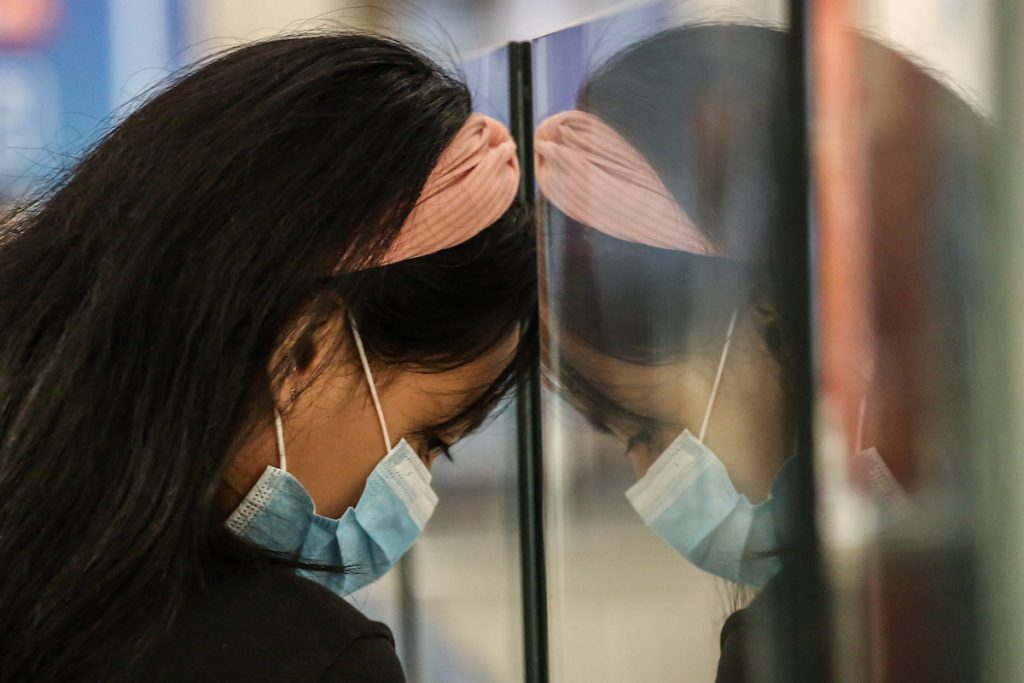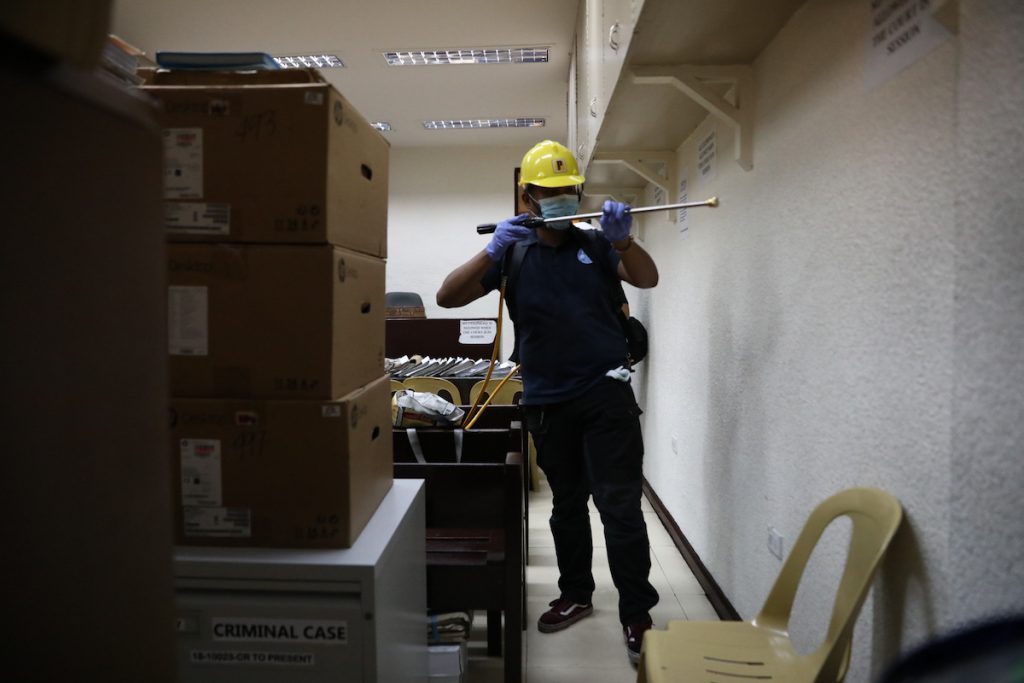There will be no public celebrations of Mass in Manila for seven days starting Saturday, March 14, following the reported increase in the number of people infected by the new coronavirus in the Philippine capital.
“I dispense all the faithful from the obligation of the Holy Mass this Sunday,” read a pastoral letter issued by Bishop Broderick Pabillo, apostolic administrator of the Manila Archdiocese.
The prelate said the faithful can participate in Mass through the church-run Radio Veritas, television channel TV Maria, and on live streaming of parish celebrations.
The Manila Archdiocese will assess the situation within the week before deciding when to resume the public celebrations in Asia’s oldest episcopal see and home to millions of Catholics.
Bishop Pabillo, meanwhile, ordered the ringing of church bells twice daily at 12 noon and at 8 p.m. to invite people to pray. He said prayers should be accompanied by acts of penance and charity, reminding the people of the observance of the season of Lent.
“Avoid panic-buying,” appealed the bishop. “We should not consider only our needs, but also the needs of others,” he said.
He urged Catholics to “think of the needs of others, especially of the poor, who are the most vulnerable.”
“Charity opens our attention and our hearts to others. Let not fear run our lives,” said the prelate.
No Sunday services for a month
The Philippine Council of Evangelical Churches also urged its church leaders to cancel Sunday worship services for a month.
“This is not an evidence of lack of faith or commitment, but it is prudence in the face of facts,” said Bishop Noel Pantoja, national director of the council.
“We must remember that viral contamination has massive effects both personally and communally,” he added.


Bishop Pantoja said there are other avenues of “meeting, counselling, fellowshipping, and being edified” aside from being physically present together.
These alternatives must be explored and used in the interim, he said, adding that the church must become part of the solution and not be another problem.
“Our government, with its minimal human, infrastructural, and financial resources, is already hard-pressed in preventing the further spread of COVID-19,” noted the bishop.
“The church must participate in this noble effort,” said Bishop Pantoja.
“Instead of insisting on what God can do for us, we must think how God can use us for our country and for others,” he said.
Manila under lockdown
President Rodrigo Duterte imposed an emergency lockdown of the Philippine capital on March 12, as health officials confirmed three new coronavirus deaths in the country.
The Health Department announced that the death toll from the virus had already reached five, with the three new fatalities.
The country of 105 million people reported its first domestic transmission of the virus over the weekend. At least 52 cases have now been detected nationwide.
The president banned domestic travel to and from Manila, which has a population of about 12 million people, starting March 15. “Community quarantine is hereby imposed in the entire of Metro Manila,” said Duterte in a late-night nationally televised broadcast.
“We don’t want to use that term, because you are afraid to call it a lockdown. But it’s a lockdown,” he said. “Let’s just follow. Just a little patience. It’s for your own good.”
He said the measures, which include the prohibition of mass gatherings, were necessary because “there is a crisis, with no solution in sight.”
Classes at all school levels in the capital would be suspended until April 12.


Land, sea, air travel to and from the capital is also restricted until April 14. The movement of goods would not be covered by the travel restriction.
Globally, the virus has killed more than 4,700 and infected over 127,000 people, according to the Johns Hopkins University global tracking of cases.
COVID-19 is a disease caused by a coronavirus called SARS-CoV-2, which is related to the virus that causes Severe Acute Respiratory Syndrome, but is not as deadly, with the fatality rate standing at around three percent.
Churches remain open
Although Masses will not be held in Manila, churches will remain open “so that the people may come and find solace in silent prayer,” said Bishop Pabillo.
He directed parishes to place hand sanitizers at entrances and to regularly clean churches.
Other dioceses and church institutions in the country also announced “pro-active measures” to help curb the spread of the disease.
Bishop Dennis Villarojo of Malolos has dispensed the Catholic faithful from Sunday Masses.
He said the Catholics can instead follow the celebration on television or online.
Caritas Philippines, the social action arm of the Catholic bishops’ conference, postponed all activities, including conferences and consultations, until the middle of April.
“We take into consideration the advisory of the bishops’ conference to postpone or suspend all gatherings of a great number of people,” said Father Edwin Gariguez, executive secretary of the social action secretariat.
He assured, however, that a skeletal workforce will remain to facilitate programs that involve “servicing the poor victims of calamities across the country.”
With reporting by Tonyo Cruz and Mark Saludes.


